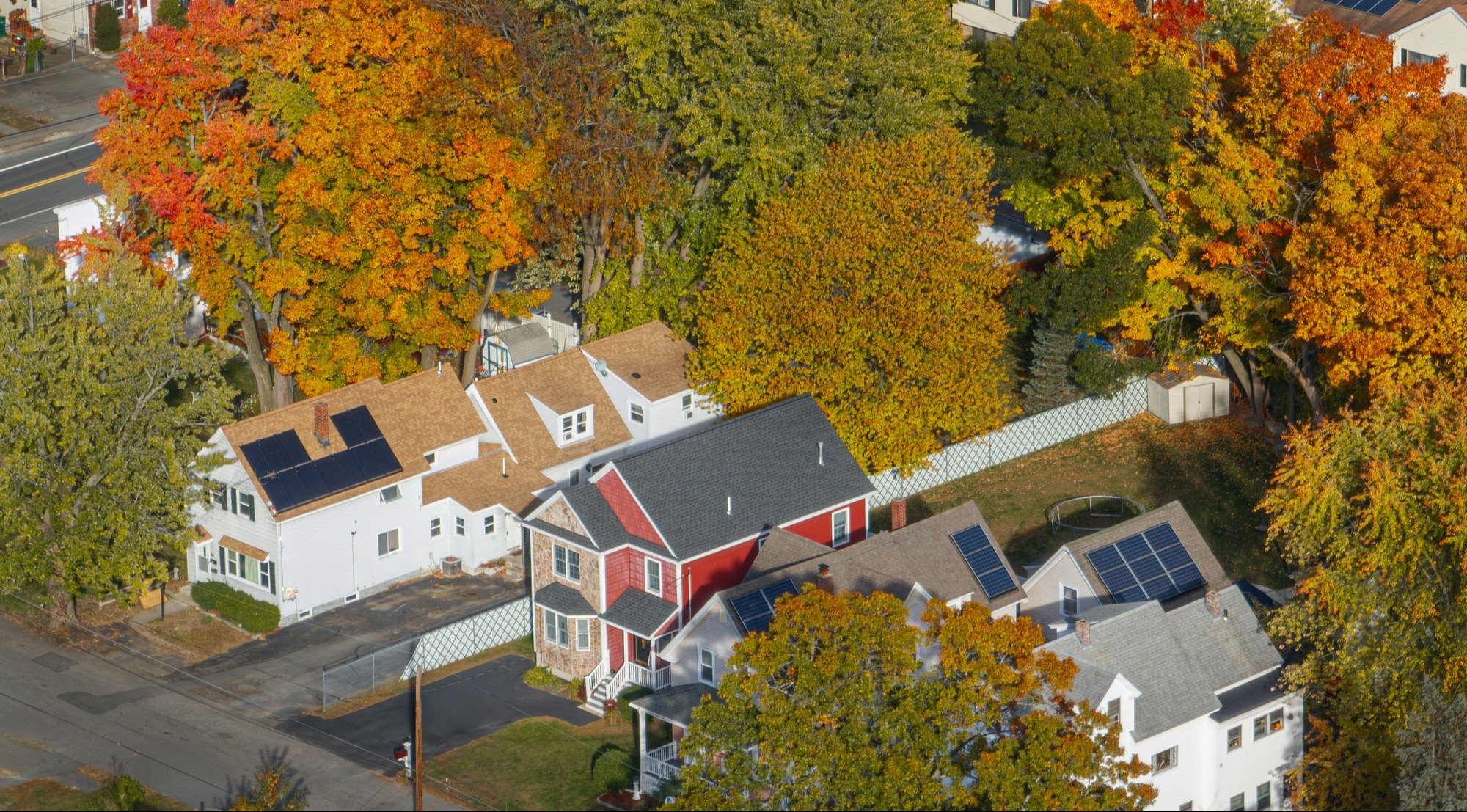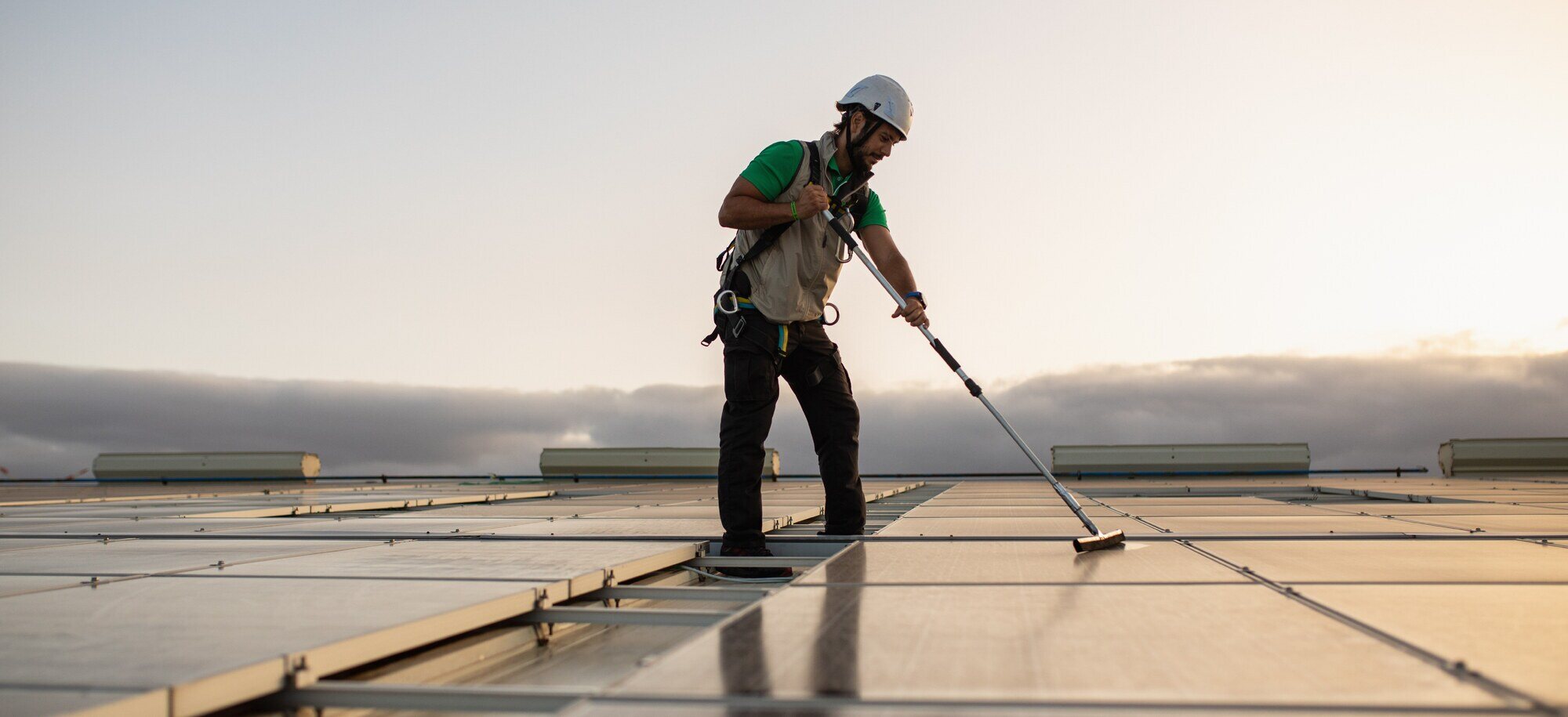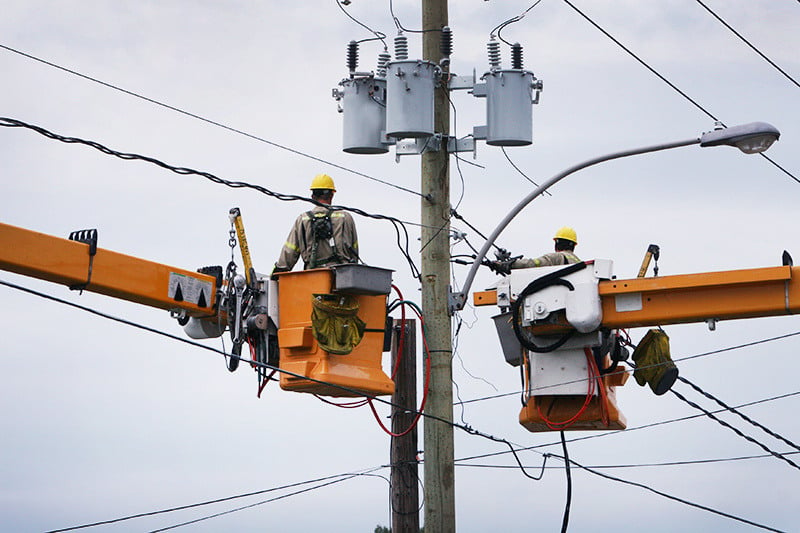How Fall Weather Could Impact Your Solar Production
 by EverBright
by EverBright

As the leaves start changing and fall brings shorter days, you may be wondering how this will affect your solar system’s performance and monthly bills. Here's what to expect.
Why Fall Means Less Solar Production
- Shorter Days, Less Sun: The most obvious factor is daylight hours. In June or July, depending on where you live, you might get 14 -15 hours of daylight, while in September that drops to 12-13 hours, and by November it’s down to 9-10 hours in most areas. That means that by November you’re producing roughly 30-50% less than your peak summer months, which is completely normal and expected.
- Lower Sun Angle: As we head toward winter, the sun sits lower in the sky. This means sunlight hits your panels at a less optimal angle, reducing the intensity of energy your system captures throughout the day.
- Weather Patterns: Fall may bring more cloudy days and stormy weather. While your panels still generate power on overcast days (about 10-25% of their peak output), it's noticeably less than those clear summer days you remember.
- Leaf Debris: If you have trees near your system, falling leaves can create temporary shading. A few leaves won't dramatically impact performance, but if there’s significant buildup, be sure to clear that away by using a hose from the ground to wash the panels. If you can’t reach them from the ground, please contact a professional to help keep them free of leaves and debris.
Benefits You Might Not Expect
- Reduced Heat: While solar panels need sunlight to generate electricity, excessive heat during the summer months can reduce their efficiency. That means that even with less sunlight in the fall, your system may produce more energy per sunlight hour compared to during the sweltering summer months. This temperature advantage can help partially offset the impact of shorter days.
- Cleaner Air: Fall weather often brings clearer, less humid air after summer's haze, which may improve solar efficiency when the sun is shining.
- Carryover of Summer Credits: Additionally, most solar systems are designed with seasonal variations in mind, and – depending on your local utility’s net metering program - extra utility credits earned during the summer for excess solar production exports can potentially rollover and help offset fall’s lower solar panel production.
Impact on Your Electric Bill
Though your solar panels won’t produce as much in the fall as they do on those long, sunny summer days, most people generally use less electricity in the fall, especially if they blast the A/C all summer. While every situation is different, this can often result in fall utility bills staying steady because the decreased solar production is balanced by your reduced energy use.
Maximizing Fall Solar Performance
Keep your panels clean and free of debris, especially after storms or windy days. Consider having a professional inspection before winter to ensure your system is operating at peak efficiency. Monitor your energy usage patterns in the MyEverBright app for iPhone or Android or in the homeowner portal. Also, when the weather starts to change, consider adjusting your thermostat by just a few degrees as needed, rather than making dramatic changes that could spike your electricity usage.
The Bottom Line
Seasonal variations are normal for solar system production as well as your own energy usage. Understanding these patterns can help you plan accordingly and continue enjoying the long-term benefits of clean, renewable energy year-round, including during the beautiful, crisp days of autumn.
Recommended Posts

HOMEOWNERS
Get the most from your solar system in the fall/winter season
Learn three ways to make the most out of your solar system during the shorter days and colder weather of the fall and winter seasons.
HOMEOWNERS
How to keep your solar panels operating efficiently
A little maintenance goes a long way to helping your solar panels operate efficiently. Learn how a little TLC can help ensure your panels are operating at peak efficiency.



